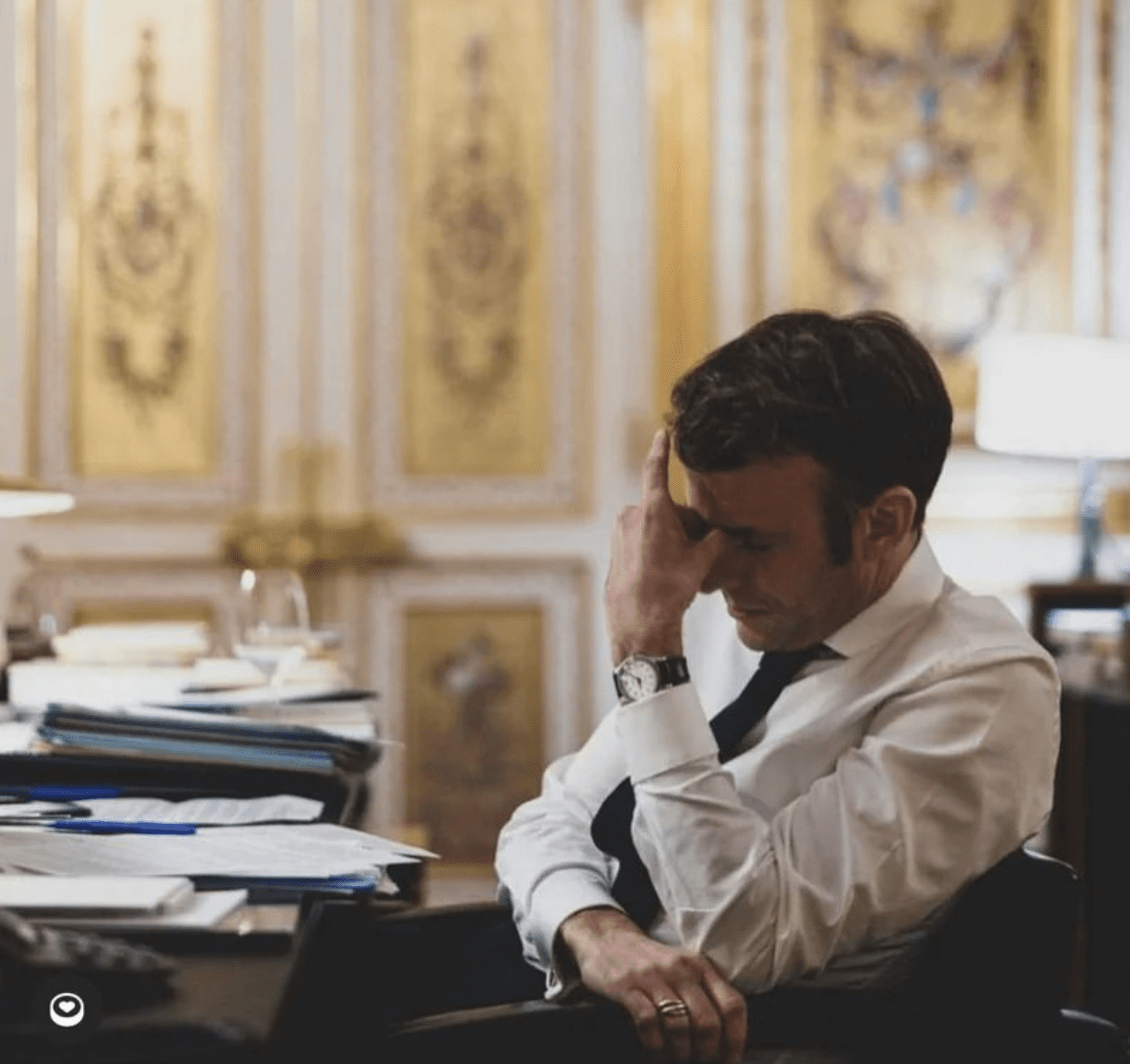
Since the beginning of the conflict between Russia and Ukraine, Emmanuel Macron has prided himself on maintaining permanent contact with Vladimir Putin through regular telephone conversations. He publically boasts of being on first-name terms with the Russian president, a relationship often spoken of in a familiar tone. But less known to the public is the content of one of these telephone conversations that took place between the two men only a few days before the Russian aggression.
A documentary, to be broadcast on Thursday, June 30th, on the French public channel France 2, reveals the content of this highly strategic discussion—which did not have the expected effect. A verbatim of the exchanges is now available in the press.
The conversation is worth a read, however the highlights are here briefly provided. The French president begins by insisting on the privileged relationship he wants to maintain with the Russian president. He wants to speak with him “in a fairly direct manner as [they] both do.” Vladimir Putin reciprocates: “I always enjoy talking to you because we have a relationship made of trust.”
The main part of the discussion concerns the application of the Minsk Agreements. Vladimir Putin plays on words, trying to get Emmanuel Macron to say that he is in favour of their revision; meanwhile, Emmanuel Macron insists on their effective application—both speaking at cross purposes, and off topic, since neither the revision nor the application of Minsk was on the agenda at the time of the exchange.
The discussion quickly shifts to the legitimacy of the representatives of the parties authorised to discuss these agreements. Putin wants the separatists to be heard, whereas Emmanuel Macron denies the separatists any right to speak independently.
From then on, the discussion is a dead end. Putin explicitly disavows the Zelensky government:
This is not a democratically elected government. They came to power in a coup, people were burned alive, it was a bloodbath and Zelensky is one of those responsible.
Emmanuel Macron, for his part, refuses to acknowledge the legitimacy of the separatists. They possess no legally recognized representation: “Who cares about the proposals of the separatists? We don’t give a damn about the separatists’ proposals,” the French president said. Refusing to grant them any authority, Macron defines the role of the separatists as subordinate to the current Ukrainian regime: “What we are asking them to do is to react to the Ukrainians’ texts and we have to do things in that direction because that is the law.”
After this heated exchange, Vladimir Putin explains that the separatists had approached the Ukrainians in good faith and had not been heard:
I repeat, the separatists, as you call them, reacted to the proposals of the Ukrainian authorities. They responded, but the same authorities did not follow up.
Therefore, to give credit to his interlocutor, Emmanuel Macron has no other way out than to propose, once again, a multiparty discussion with arbitration, and proposes to play matchmaker. “So okay: on the basis of their response to the Ukrainian texts, what I propose to you is that we demand from all parties a meeting in the framework of the contact group to continue to move forward.”
At the end of the discussion, Emmanuel Macron manages to extract from Vladimir Putin the principle of an international meeting. “Are you ready to move forward and say today ‘I want a two-person meeting with the Americans, then extended to the Europeans’?” To which Putin replied: “You should know that I agree in principle.”
It is clear from this exchange that on several occasions Emmanuel Macron has sought to appear as the indispensable arbiter of a totally blocked situation. For, while Ukrainians and separatists remained at loggerheads, troop movements were well and truly underway, and the French President did not fail to remind Vladimir Putin of this:
I need you to help me a little. The situation on the contact line is very tense. I really called yesterday for Zelensky to calm down. I will tell him again, calm everyone, calm in the social networks, calm the Ukrainian armed forces. But what I also see is that you can really call to calm your pre-positioned armed forces. There was a lot of bombing yesterday. If you want to give dialogue a chance, you have to calm down the game in the region.
The end of the interview is particularly revealing of the game of fools that is being played. Emmanuel Macron, in earnest, calls Vladimir Putin to draft a joint communiqué at the end of the telephone call—marking their common will to set up an international meeting, the modalities of which remain to be determined. Vladimir Putin, while approving of a meeting in principle, treats it with a lack of seriousness, as if the pressure to generate an ameliorative press release will further distract him from his routine: “I wanted to go play ice hockey … here I’m talking to you.”
A few days later, the conflict broke out. The international meeting would never take place. Emmanuel Macron may have prejudged his strengths and overestimated the “confidence” that Vladimir Putin had in him. Macron should be granted merit though: he tried to ‘discuss’ to the edge of the precipice.
